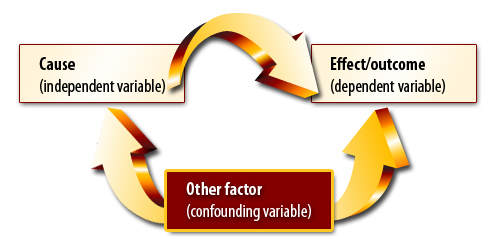Judea Pearl’s and Bryant Chen’s Regression and causation: a critical examination of six econometrics textbooks — published in Real-World Economics Review no. 65 — addresses two very important questions in the teaching of modern econometrics and its different textbooks — how is causality treated in general, and more specifically, to what extent they use a distinct causal notation. The authors have for years been part of an extended effort of advancing explicit causal modelling (especially graphical models) in applied sciences, and this article examines to what extent these endeavours have found their way into econometrics textbooks (and Pearl has later come back to the theme in his The Book of Why (2018)) Although the text partly is of a rather demanding ‘technical’ nature,
Topics:
Lars Pålsson Syll considers the following as important: Statistics & Econometrics
This could be interesting, too:
Lars Pålsson Syll writes Keynes’ critique of econometrics is still valid
Lars Pålsson Syll writes The history of random walks
Lars Pålsson Syll writes The history of econometrics
Lars Pålsson Syll writes What statistics teachers get wrong!
Judea Pearl’s and Bryant Chen’s Regression and causation: a critical examination of six econometrics textbooks — published in Real-World Economics Review no. 65 — addresses two very important questions in the teaching of modern econometrics and its different textbooks — how is causality treated in general, and more specifically, to what extent they use a distinct causal notation.

The authors have for years been part of an extended effort of advancing explicit causal modelling (especially graphical models) in applied sciences, and this article examines to what extent these endeavours have found their way into econometrics textbooks (and Pearl has later come back to the theme in his The Book of Why (2018))
Although the text partly is of a rather demanding ‘technical’ nature, yours truly definitely recommend it for reading, especially for social scientists with an interest in causality.
Pearl’s seminal contribution to this research field is well-known and indisputable, but on the ‘taming’ and ‘resolve’ of the issues, I, however, have to admit that — under the influence of especially David Freedman and Nancy Cartwright — I still have some doubts on the reach, especially in terms of ‘realism’ and ‘relevance, of these ‘solutions’ for social sciences in general and economics in specific (see here, here, here and here). And with regards to the present article I think that since the distinction between the ‘interventionist’ E[Y|do(X)] and the more traditional ‘conditional expectationist’ E[Y|X] is so crucial for the subsequent argumentation, a more elaborated presentation had been of value, not the least because then the authors could also more fully explain why the first is so important and if/why this (in my, Freedman’s and Cartwright’s view) can be exported from ‘engineer’ contexts where it arguably easily and universally apply, to ‘socio-economic’ contexts where ‘manipulativity,’ ‘stability,’ faithfulness,’ ‘invariance’ and ‘modularity’ are not perhaps so universally at hand. In real-world settings, interventions may affect variables in complex and non-deterministic ways. In socio-economic contexts, complexity and lack of control often make it impossible to treat change — and causality — in terms of easily identifiable ‘interventions.’
The value of getting at precise and rigorous conclusions about causality based on ‘tractability’ conditions that are seldom met in real life, is difficult to assess. Testing and constructing models is one thing, but we do also need guidelines for how to evaluate in which situations and contexts they are applicable. Formalism may help us a bit down the road, but we have to make sure it somehow also fits the world if it is going to be really helpful in navigating that world. In all of science, conclusions are never more certain than the assumptions on which they are founded. Epistemically convenient methods and models that work in ‘well-behaved’ systems need not work in other contexts.
